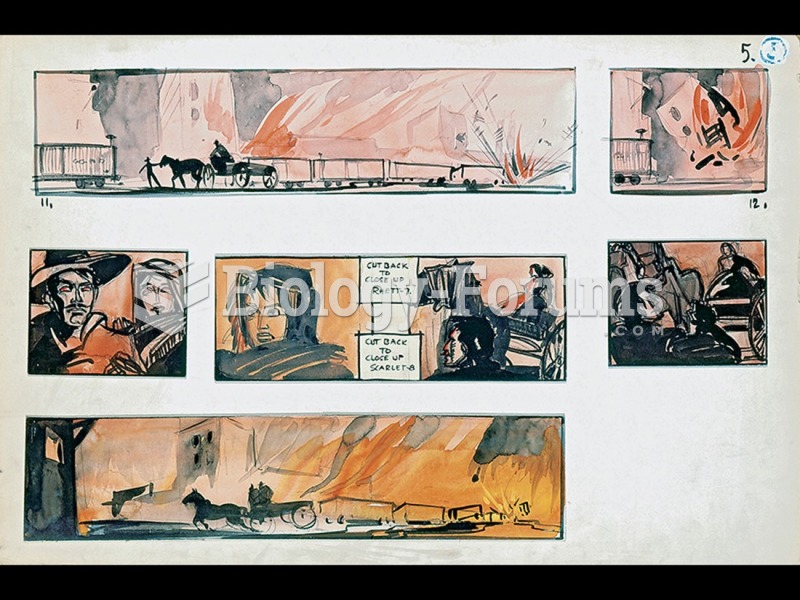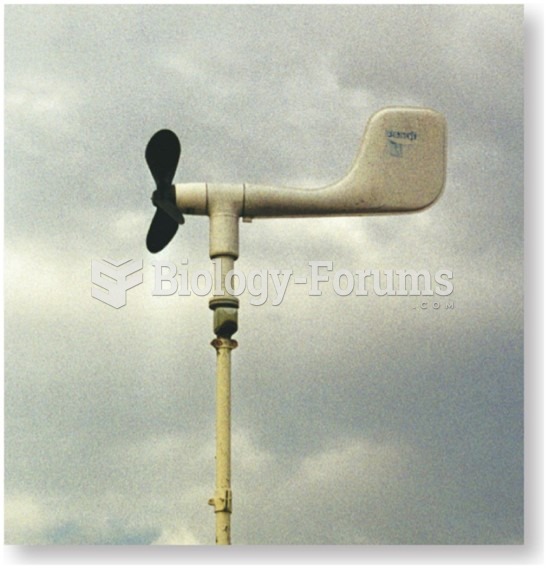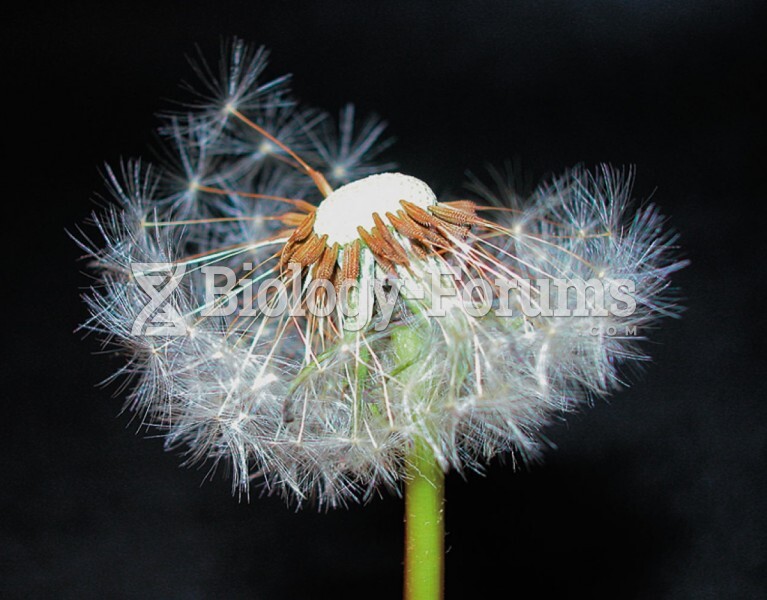|
|
|
The most common treatment options for addiction include psychotherapy, support groups, and individual counseling.
Drying your hands with a paper towel will reduce the bacterial count on your hands by 45–60%.
Once thought to have neurofibromatosis, Joseph Merrick (also known as "the elephant man") is now, in retrospect, thought by clinical experts to have had Proteus syndrome. This endocrine disease causes continued and abnormal growth of the bones, muscles, skin, and so on and can become completely debilitating with severe deformities occurring anywhere on the body.
Approximately 25% of all reported medication errors result from some kind of name confusion.
Nitroglycerin is used to alleviate various heart-related conditions, and it is also the chief component of dynamite (but mixed in a solid clay base to stabilize it).







